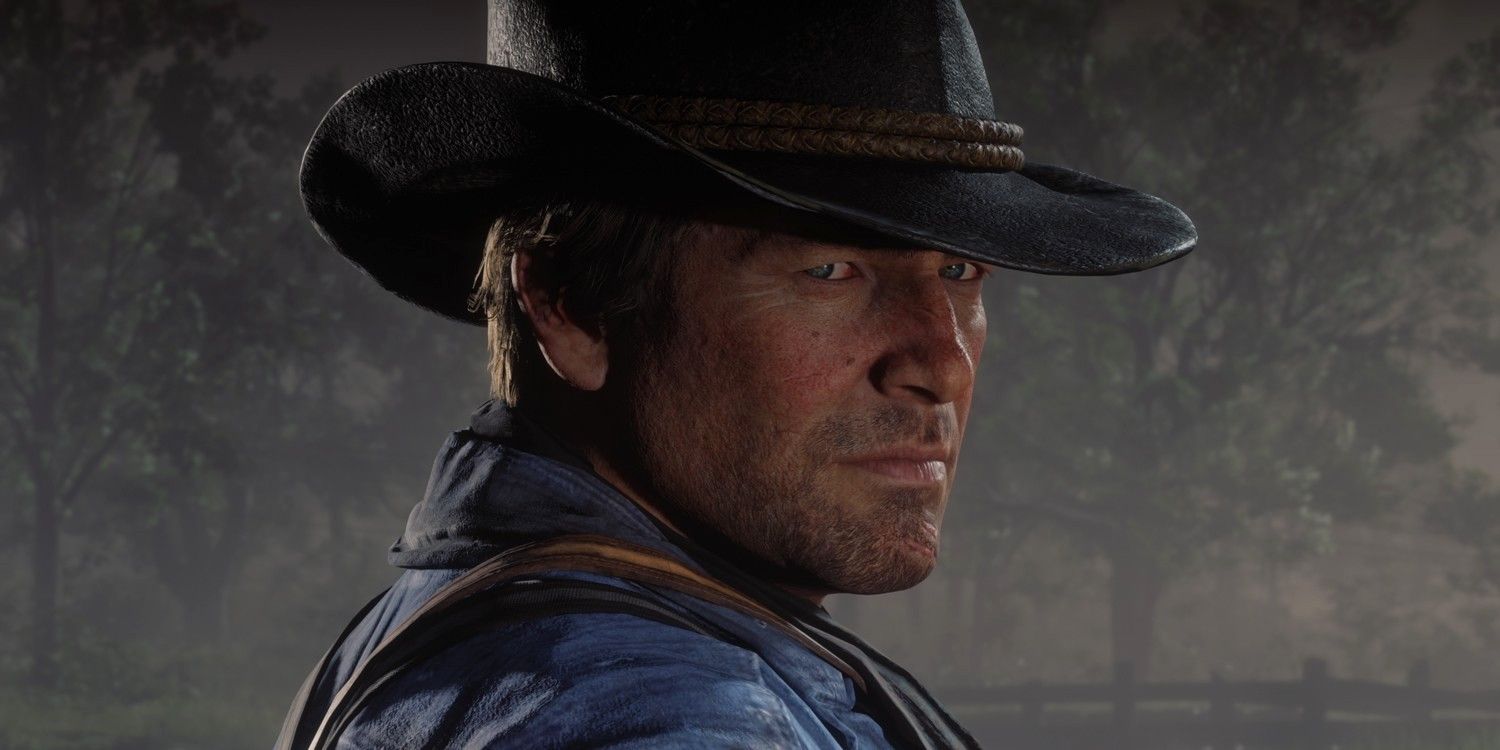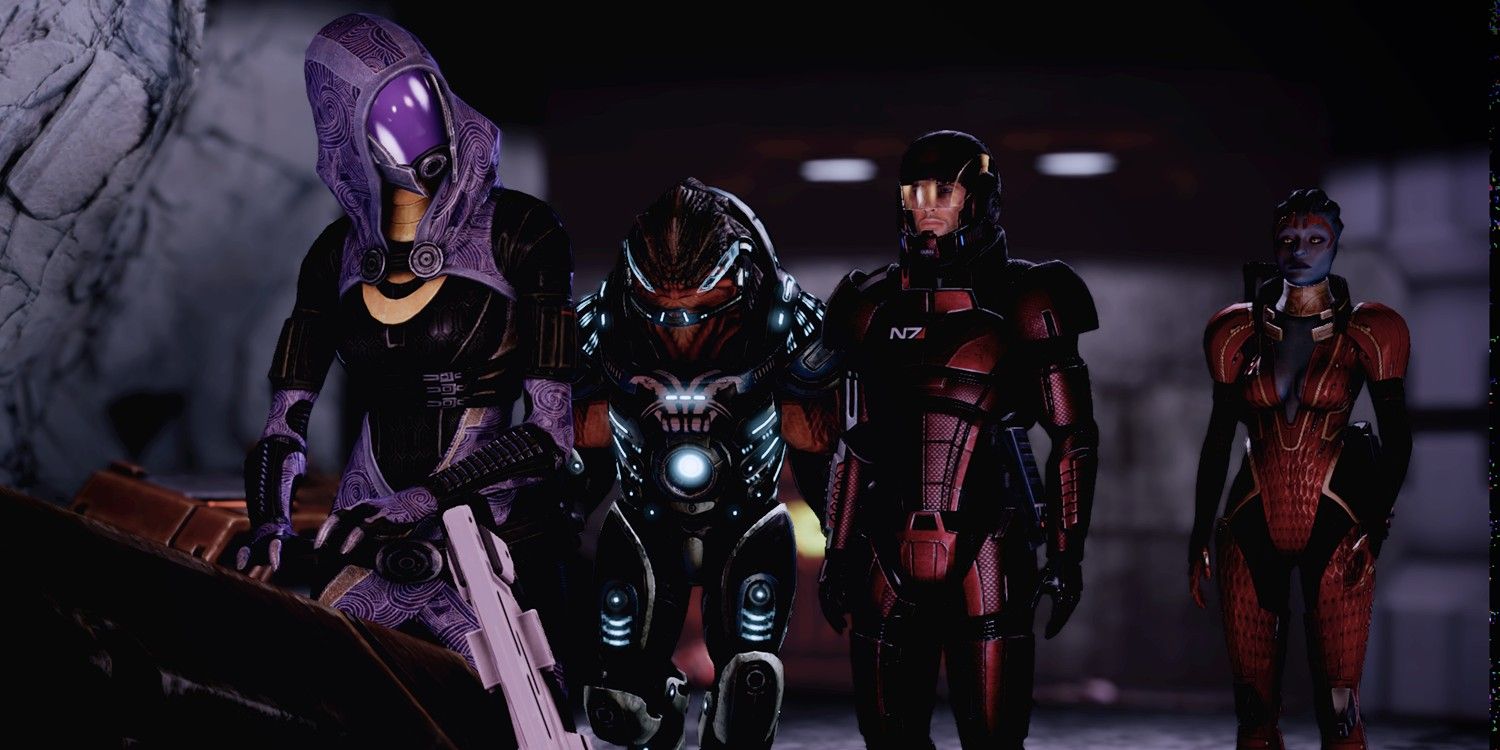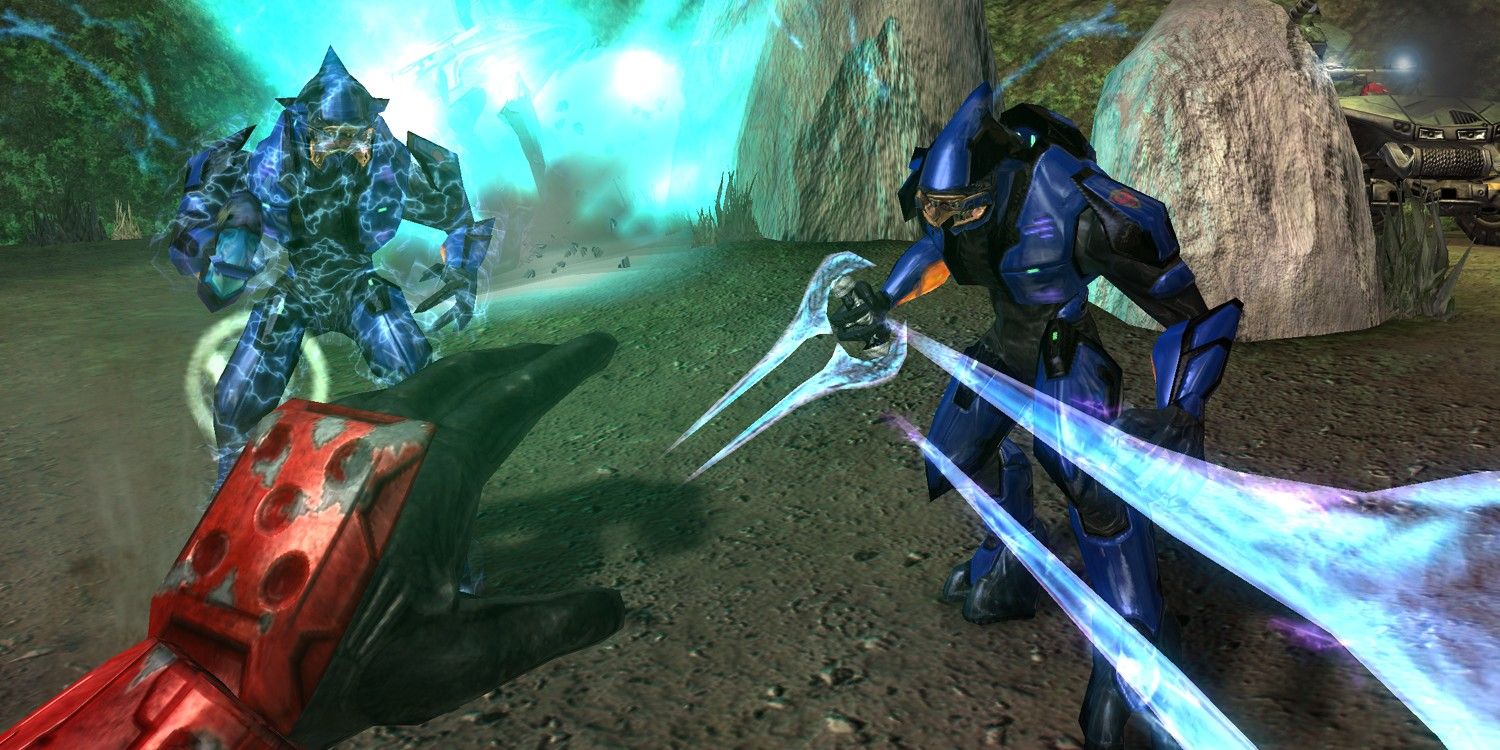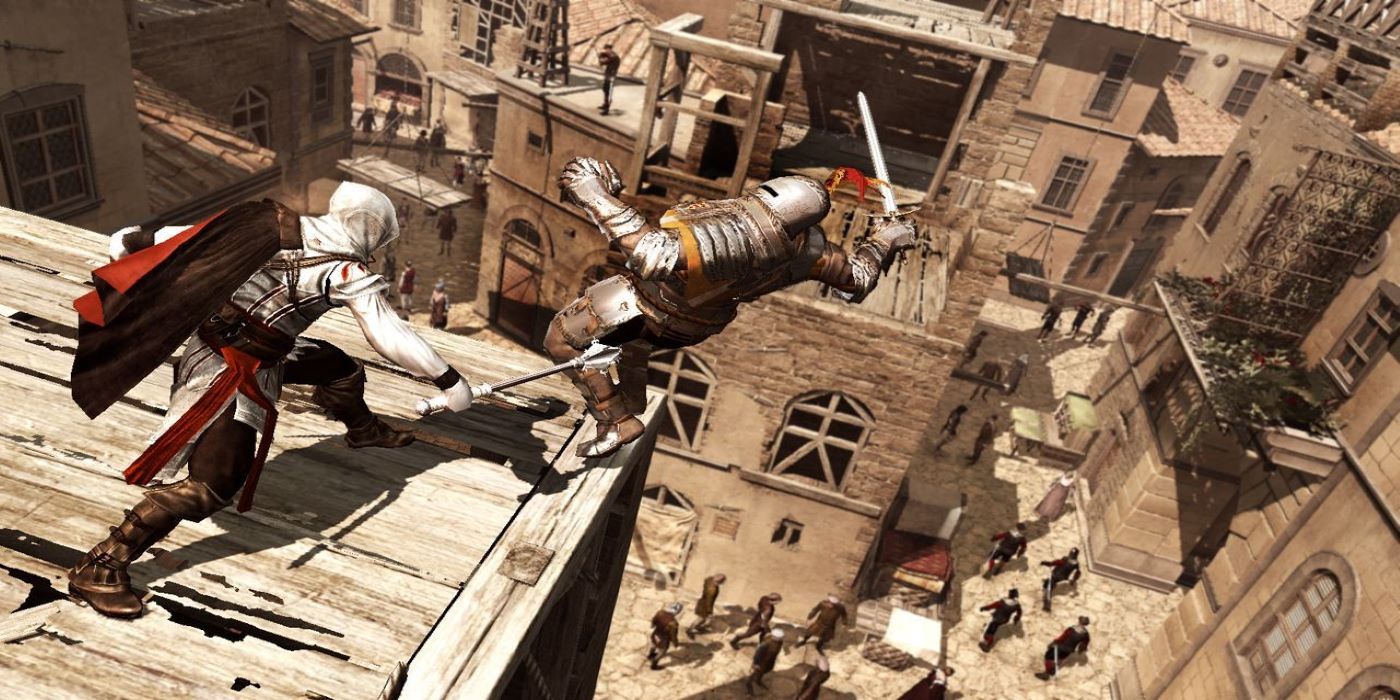Red Dead Redemption 2 is widely regarded as one of the best sequels in gaming, far outdoing the original, but there are more titles whose sequels are superior to their predecessors. Red Dead Redemption was released in 2010 and was celebrated by players and critics alike. The follow-up to the hugely successful wild west RPG, RDR2, took eight long years to arrive. Still, it ended up being well worth the wait, surpassing expectations even with the considerable amount of hype surrounding its launch.
Not only did Red Dead Redemption 2 introduce hyper-realistic looting mechanics and visuals, but it also introduced a brand new protagonist in the form of Arthur Morgan, who replaced John Marston. Additionally, Rockstar Games crafted a compelling narrative centered around the new title character even though the ultimate fate of the original protagonist from RDR, John Marston, had been revealed long ago. Players are taken on a journey as Arthur struggles to adapt to a changing world, a powerful and ever-present theme in the world of Red Dead Redemption 2.
Unfortunately, not all gaming sequels are going to be able to live up to or surpass the quality of their original game in the same manner as Red Dead Redemption 2. Creating a follow-up to a successful or beloved title is a difficult task, especially when anticipation is high from the respective audience. However, there are some sequels that are widely considered by many to be overall better than their original games.
Mass Effect 2's Story Is More Engaging And The Stakes Are Higher
Mass Effect 2, widely considered to be the best of the Mass Effect trilogy, was released in 2010 to critical acclaim. Following the events of the first Mass Effect, the Normandy is attacked by an unknown vessel and blown to pieces, leaving Shepard killed in action. Their body is then recovered by the human supremacist organization Cerberus, where their mysterious leader, known as The Illusive Man, then spends the better part of two years working to resurrect Shepard via the Lazarus Project. The Illusive Man then recruits Shepard to investigate the disappearances of multiple human colonies throughout the system, only to reveal that a reclusive insectoid alien race known as the Collectors may be responsible.
The mystery slowly unfolds throughout the course of Mass Effect 2, as it's revealed that the Collectors reside beyond the Omega-4 relay, a sector from which no ship has ever returned. Furthermore, it's discovered that the Collectors were once Protheons but were subjected to genetic experimentation, mutation, and the infusion of cybernetics by the Reapers, a synthetic-organic machine race whose mission is to periodically cleanse the galaxy of technologically advanced organic life. The bulk of the Reaper forces remains in deep space, far outside the Milky Way, while the Collectors patrol the galaxy on their behalf, trading exotic technology with various colonies often in exchange for live beings.
Even though the majority of the missions and choices to make in Mass Effect 2 revolve around recruiting squadmates and completing their loyalty missions, the gameplay never feels repetitive. Each character has distinct personalities, motivations, and obstacles to overcome, and their unique stories help to make them memorable. Additionally, the introduction of Paragon and Renegade dialogue interruptions gave players more control over the story and allowed them to craft their own version of Shepard. The stakes are high in Mass Effect 2, and BioWare does a great job of making sure players can feel that throughout the course of the game.
Halo 2 Expanded On What Made Halo: Combat Evolved Feel Special
Halo: Combat Evolved was released in 2001, and its impact on the first-person shooter genre is still being felt today. It offered a gripping single-player/co-op campaign and a PVP experience the likes of which hadn't been seen before. It also introduced unique - and what would come to be known as classic - Halo multiplayer maps like Hang Em' High, Blood Gultch, and Battle Creek, where players could keep the battle going with friends long after the story had concluded. Expectations were high prior to the release of the direct sequel, Halo 2, which at the time was projected to have the single biggest retail launch in entertainment history.
Fortunately, Bungie managed to deliver a more than worthy successor by expanding and improving upon the core gameplay mechanics and unique aspects that made Halo: Combat Evolved such a hit, including its multiplayer - which came during the formative years of Xbox Live - and in its single-player, which drew plaudits despite its criticized ending. Arriving with an even stronger campaign, Halo 2 uses the perspective of The Arbiter, a disgraced Covenant Elite who had been given the moniker as a way to atone for his failures, to tell a large portion of the story. As the campaign opens, the events of Halo: Combat Evolved are recounted from the view of the Covenant during a sort of tribunal for the soon-to-be Arbiter, and for the first time in the series, players are given an inside look at how the Covenant hierarchy operates behind the scenes.
Additionally, the PVP side of Halo 2 took a large step forward. The stability improvements and the influx of new maps that focused on long-range, mid-rage, and close-quarters combat further bolstered the game's status as the premier FPS title at the time. In another bold change, Halo 2 (renowned for its iconic two-weapon system) introduced the ability to dual-wield weapons, further diversifying the ways that players could approach engagements. Halo 2 still boasts a sizable player base within Halo: The Master Chief Collection remasters, but it will perhaps always be remembered for how it brought people together during those early years of Xbox Live.
Assassin's Creed 2 Laid The Groundwork For The Rest Of The Series
Assassin's Creed II, the sequel to 2007's groundbreaking action-adventure title Assassins Creed, was released to much anticipation in 2009. While the original game saw Desmond Miles use the Animus to relive the memories of his ancestor, Altair, during The Third Crusade in The Holy Land, this sequel follows Miles as he ventures into the mind of Ezio Auditore, a member of a wealthy Florentine family in the late 1400s. AC II's story is far more engaging as Miles is thrust into the age of the Italian Renaissance, where he learns of the Auditore family's role in the Assassin Brotherhood and sees Ezio train to become an assassin himself as he embarks on a quest for revenge against those wrongfully executed his father and brothers.
Nearly every aspect of Assassin's Creed 2's gameplay and open world had seen improvements in the new installment. The cities are larger and more intricate, there is more attention to detail, and there is a far more diverse array of weaponry available to the assassin. Combat is also much smoother, and the number of tools and gadgets at one's disposal allows for more creativity and freedom when attacking from stealth. In fact, the sequel was so well received that it spawned two more games to continue the Ezio storyline, those being Brotherhood and Revelations. Many of the innovative features implemented in Assassin's Creed 2 remain a core part of the franchise today.
While these are some of the most widely regarded superior sequels, there are certainly others that are worthy of such a distinction. And with highly anticipated sequels like Breath of the Wild 2 and S.T.A.L.K.E.R 2: Heart of Chernobyl on the horizon, the future is certainly looking bright for a lot of franchises. Rockstar's Old West epic Red Dead Redemption 2 raised the bar for what a sequel can achieve, and rightfully so as it is widely considered to be one of the greatest follow-ups to date.




